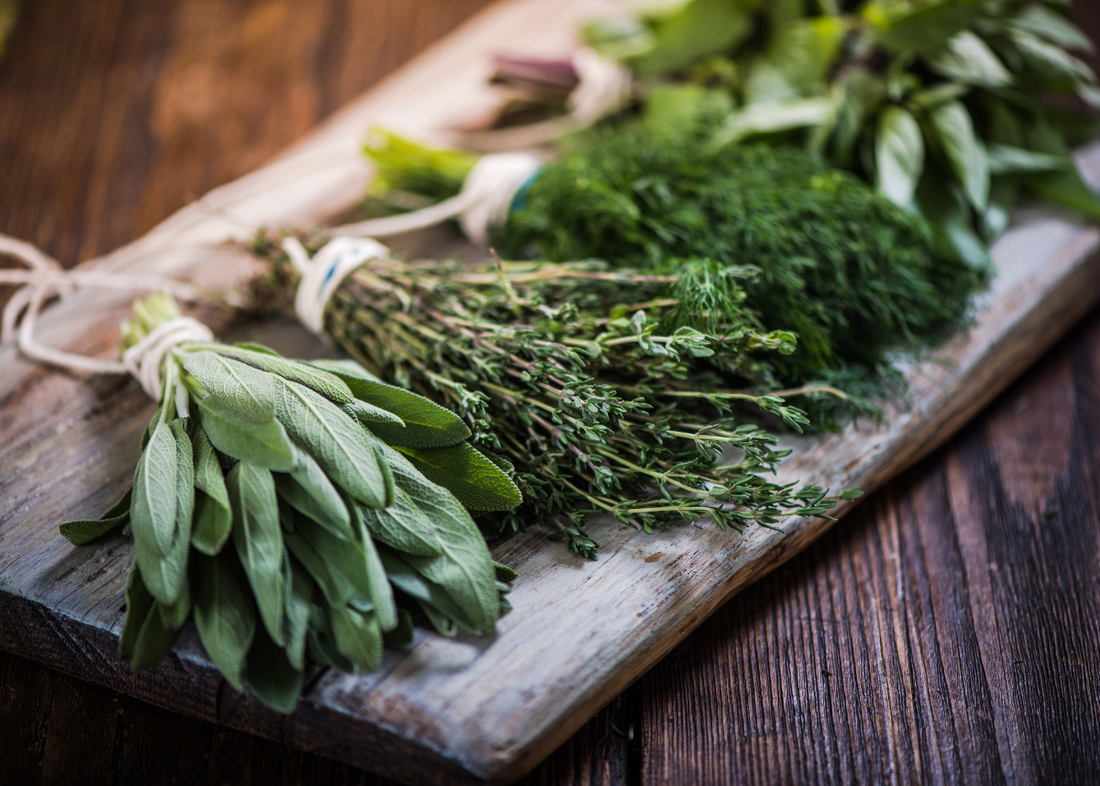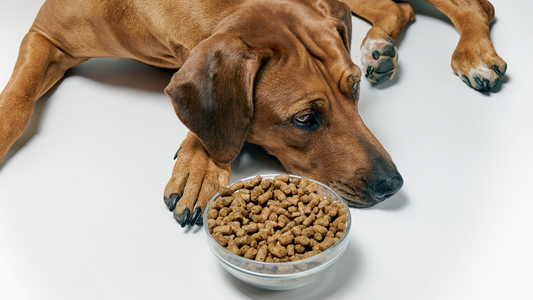Herbs such as parsley, rosemary, and mint can be great additions to your dog's diet. Not only are they packed with essential vitamins and minerals but they also have some amazing benefits for their overall wellbeing.
From helping to reduce inflammation and improve digestion to providing a boost of antioxidants, these herbs offer a range of benefits that can help keep your pup happy and healthy.
In this blog post, we'll discuss the various benefits of these herbs and provide tips on how you can incorporate them into your pup's diet.
Common Herbs & Their Uses in Dog Health Care
The healing benefits of parsley for dogs
Parsley is a flavourful herb found in most gardens. It is one of the best natural sources of Vitamin K you can give to your pet. Vitamin K helps the blood to clot, promotes liver health and bone health.
Parsley also acts as a diuretic (something that increases urine production) which makes it perfect for flushing waste out of your dog's body.
Parsley has been found to have both anti-inflammatory and antimicrobial properties, making it a good substance to consume for dogs who suffer from UTIs.
But one of our favourite is the effect of parsley on the GI tract. It helps with digestion and makes a great doggy breath freshener, as it gets rid of the nasty bacteria that causes bad breath. This is why we use it in our Healthy Chompers superblend. You're welcome!
The wonders of Rosemary for dogs
Rosemary is a safe herb for dogs to eat and has many impressive medicinal properties.
It contains antioxidants that help straighten your dog's immune system, fight off infection, and may prevent cancer and heart disease. Because of its antipasmodics properties (helping relax muscles) it promotes a strong cardiovascular system.
Rosemary also has antimicrobial properties, improving digestion and working well against indigestion and gas.
It makes a great natural preservative in DIY dog treats as well as a natural tick and flea repellent.
The power of mint for dogs
Mint is not toxic to dogs in small amounts. In fact, it's a great ally to soothe tummy upset, freshen breath, and help with allergies.
It is high in chlorophyll - that's the stuff that keeps your dog's cells in top shape and helps detoxify blood.
Mint is full of antioxidants and nutrients that can help protect your dog and keep them healthy.
The soothing benefits of Chamomile
Chamomile is a medicinal herb. Best known for its calming properties- we drink chamomile tea to help ourselves fall asleep- it is safe for dogs and full of health benefits.
In fact, it is one of the safest herbs you can offer your dog!
Chamomile has anti-inflammatory, sedative, and antispasmodic properties.
It eases anxiety, acts as a natural muscle relaxant and can help a stressed-out pup return to a normal state.
Herbal Remedies You Can Use at Home to Help Your Dog Feel Better
Herbs are best used fresh although you can substitute for dry herbs if you really need to.
You can use finely chopped parsley and mint and sprinkle directly onto your dog's food (feed at least twice per week) or add it to your DIY treats.
Mint and parsley combined make a great breath freshener and tongue cleaner when spread on a lick mat. Give to your dog as an after-dinner treat.
Parsley Soup is a great method for treating dogs with a urinary tract infection, and works best when given on an empty stomach. Using a blender, mix together fresh parsley leaves with water, about one part leaves to one part water. Administer the parsley soup at a ratio of 1 teaspoon per 10kg of dog weight. If your dog isn't so crazy about the taste, try pouring it into ice crube trays and freezing them, especially if your dog is a fan of icy treats. As a last resort, you can pour it over your dog's food.
You can mix a little chopped fresh or dried rosemary into your dog’s food or water. Rosemary is great incorporated into dog treats, like these Sunday Roast bikkies.
Our favourite way of using chamomile for pets is through a tea or DIY calming gummies. The tea is quick and easy to make and can help soothe your dog's tummy rapidly when they're having diarrhoa. What's more is that the sweet taste of that plant can help encourage your dog to drink and keep their hydration level up, which is very important when they are losing fluids.
Safety Tips and Precautions When Dealing with Herbs for Pets.
While most herbs are safe for pets to eat, there are some common tips to keep in mind:
- always thoroughly wash your fresh herbs and serve in moderation.
- don't use the essential oil version of these herbs unless supervised by a holistic vet.
Moderation is key. An excess consumption of the aformentionned herbs can lead to seizures, abdominal discomfort, vomiting and diarrhoea. But don't let the fear hold you for adding these nutrient powerhouses to your dog's diet. They need to be ingested in large amount for your dog to have side effects.
The beauty of herbs is that they are easily available! In fact, you can even grow them in pots. While you can also use dry herbs, it's best to use fresh if possible. So start adding these herbs to your dog's bowl today!
Want to be the first to get your paws onto the hottest topics? Subscribe to our newsletter!
--------------------------------------------------------------------
The Doggy Grub blog is dedicated to helping dogs and their owners achieve happier, healthier lives, changing the way we feed our dogs one bowl at a time! If you would like to know more about our fresh food head to Doggy Grub










